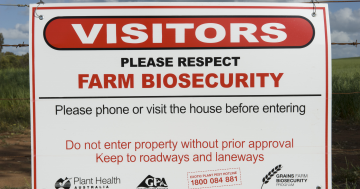 The Department of Agriculture, Water and the Environment (DAWE) has reminded the public to be mindful of the risk of importing foreign pests and diseases when buying goods from overseas during the COVID-19 pandemic.
The Department of Agriculture, Water and the Environment (DAWE) has reminded the public to be mindful of the risk of importing foreign pests and diseases when buying goods from overseas during the COVID-19 pandemic.
Minister for Agriculture, Water and Emergency Management, David Littleproud said everyone must follow Australia’s biosecurity conditions when buying goods online from overseas and be confident that the seller is reliable.
“My Department is preparing for a significant increase in international mail, as a result of the impacts of COVID-19 and the reduction in traveller numbers,” Mr Littleproud said.
“We already intercept a large volume of risk items at our mail centres each year, with more than 75,000 items of biosecurity concern intercepted across Australia in 2019.”
He said the best way to protect Australia’s biosecurity was to buy locally rather than overseas.
“Items such as food, plants, seeds, meat and pet treats can be considered a biosecurity risk and may be seized and destroyed if they arrive at our mail centres,” Mr Littleproud said.
“Seeds can carry viruses that could threaten our fruit and vegetable industry, while meat and pet treats can carry risks like African swine fever, which could devastate our pork industry,” he said.
“If you are considering purchasing food or seeds for sowing, remember that Australia has strong food security, producing enough food for 75 million people with a population of only 25 million.”
He said the same rules applied for anyone expecting to receive gifts or other goods in the mail from family and friends overseas.
“So make sure you pass the message on,” Mr Littleproud said.
“This is a challenging time, but by keeping these things in mind you can avoid wasting money and do your part to support Australia’s biosecurity.”
The Minister said biosecurity officers, detector dogs and x-ray machines were in place at international mail centres to inspect incoming parcels.
He said goods that were deemed to pose a biosecurity risk would be seized and destroyed or be re-exported at the expense of the customer.






